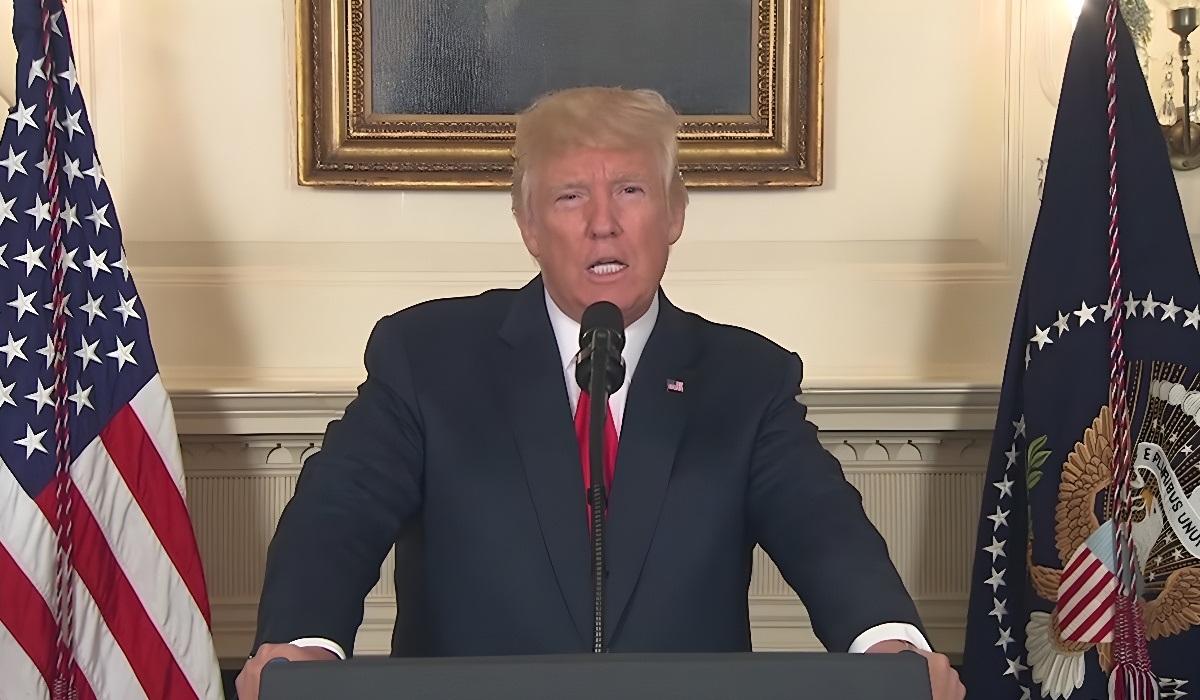Trump Halts Trade Talks With Canada Over Digital Services Tax: “ALL Discussions… Terminated”
- TDS News
- Breaking News
- June 28, 2025

On Friday afternoon, U.S. President Donald Trump took to Truth Social and delivered a direct blow to Canada’s trade relationship with the United States, declaring:
“Based on this egregious Tax, we are hereby terminating ALL discussions on Trade with Canada, effective immediately. We will let Canada know the Tariff that they will be paying to do business with the United States of America within the next seven day period.”
The post, published shortly after 4:30 p.m. EST, was in response to Canada’s decision to move ahead with its long-delayed Digital Services Tax (DST)—a 3% levy on large tech companies that generate revenue from Canadian users, including those in digital advertising, online marketplaces, and social media platforms. The tax officially comes into force Monday and applies retroactively to revenues earned since 2022.
Though the tax is structured to affect companies with global revenues of at least €750 million and Canadian revenues of at least C$20 million, its real-world application targets American tech giants: Google, Amazon, Meta, Apple, and others. Canada has argued the tax is fair and temporary, meant to hold digital multinationals accountable until a global taxation framework is finalized under the OECD. But Trump isn’t interested in that explanation.
His Truth Social post makes no mention of negotiations, compromise, or discussion. It is a blunt and final statement of action—all trade talks with Canada are canceled. It also promises tariffs within the next seven days, though no specifics have been announced as of Saturday morning.
While Canadian officials have acknowledged the potential backlash from Washington, Ottawa has not yet issued a formal reply to Trump’s post. However, Deputy Prime Minister Chrystia Freeland did reaffirm Canada’s position earlier Friday, before the post went live, indicating the country’s intent to move forward with the DST regardless of external pressure. That stance appears to have triggered Trump’s response.
This marks a dramatic escalation in Canada–U.S. trade tensions and signals a realignment of priorities from the White House. Trump’s administration views the DST as not just a tax policy but an act of economic aggression—one that aligns Canada closer with Europe, where similar digital taxes have been implemented, and away from the United States.
The immediate impact of Trump’s order is the freezing of any ongoing or future trade discussions between the two countries. For Canada, this means potential tariffs on sectors that historically bore the brunt of U.S. retaliation—dairy, aluminum, timber, autos, and agriculture are all potential targets. For American firms, the DST adds a new cost burden for operating in Canada, one that could shift how digital services are priced or offered to Canadian users.
Where things go next depends on how hard each side is willing to push. Trump’s tone suggests he’s prepared to escalate rapidly if Canada doesn’t walk back the tax. For now, Canada has made no move to do so. If that remains the case, tariffs are almost certain by next week.
This isn’t just a policy dispute—it’s now a full-blown trade standoff between two of the world’s closest allies. And at the heart of it is a broader question: who gets to decide how and where multinational tech giants pay taxes? The coming days will make that question unavoidable for businesses and consumers on both sides of the border.








